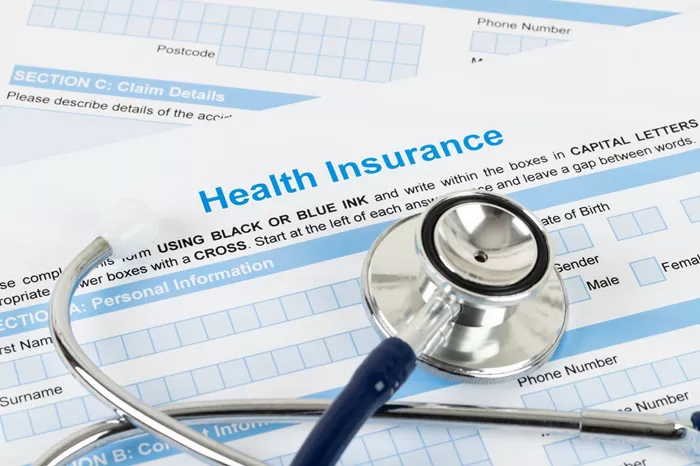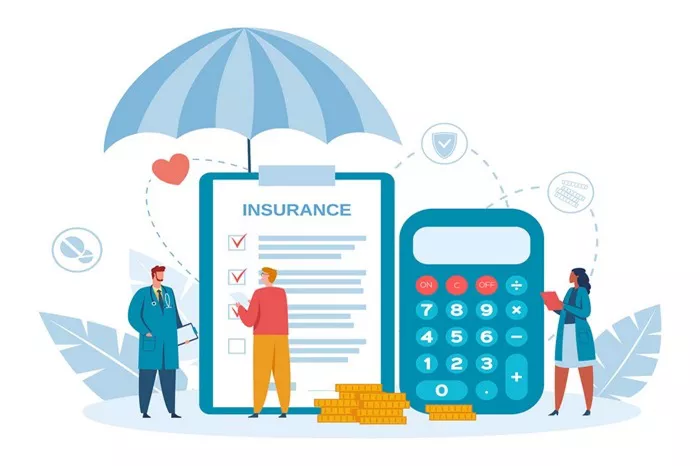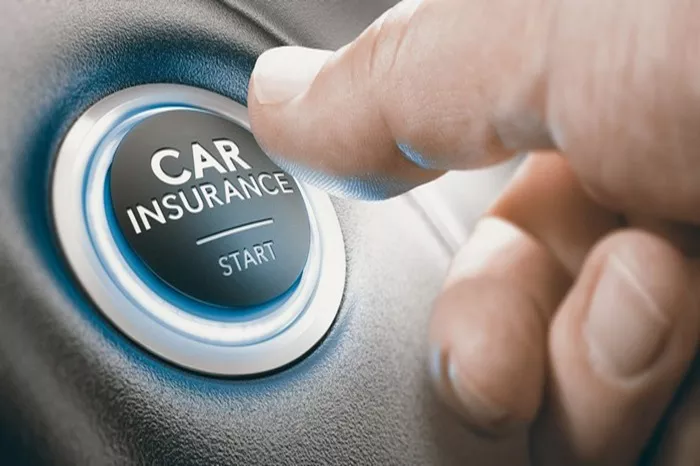When it comes to auto insurance, understanding the various types of coverage is essential for protecting yourself and your financial interests on the road. One important component of auto insurance that many drivers may not fully understand is Personal Injury Protection (PIP). This article will provide a comprehensive overview of PIP, including what it is, how it works, its benefits and limitations, and how it fits into the broader landscape of auto insurance. By the end of this guide, you will have a clear understanding of PIP and its significance in auto insurance policies.
Understanding Auto Insurance Basics
What Is Auto Insurance
Auto insurance is a contract between a vehicle owner and an insurance company that provides financial protection against losses resulting from accidents, theft, and other incidents involving the vehicle. In exchange for premium payments, the insurer agrees to cover certain costs as outlined in the policy.
Types of Auto Insurance Coverage
Before diving into PIP, it’s important to understand the various types of auto insurance coverage available:
Liability Coverage: This is the most basic form of auto insurance, typically required by law in most states. It covers damages and injuries you cause to others in an accident. Liability coverage is divided into two parts:
Bodily Injury Liability: Covers medical expenses and lost wages for others injured in an accident you caused.
Property Damage Liability: Covers damages to another person’s property, such as their vehicle or other structures.
Collision Coverage: This pays for damages to your vehicle resulting from a collision with another vehicle or object, regardless of fault.
Comprehensive Coverage: This protects against damages to your vehicle from non-collision-related incidents, such as theft, vandalism, or natural disasters.
Uninsured/Underinsured Motorist Coverage: This provides protection if you are in an accident with a driver who does not have insurance or does not have enough insurance to cover the damages.
Personal Injury Protection (PIP): This is a type of coverage that pays for medical expenses and other related costs for you and your passengers, regardless of who is at fault in an accident.
What Is Personal Injury Protection (PIP)
Definition of PIP
Personal Injury Protection (PIP) is a type of auto insurance coverage that helps pay for medical expenses and, in some cases, other related costs that arise from an automobile accident. PIP is often referred to as “no-fault” insurance because it provides benefits regardless of who caused the accident. This means that if you are injured in a car accident, your PIP coverage will help pay for your medical bills, lost wages, and other expenses, regardless of whether you were at fault.
Key Features of PIP
Coverage for Medical Expenses: PIP typically covers medical expenses for injuries sustained in an accident, including hospital bills, doctor visits, surgery, rehabilitation, and other necessary medical treatments.
Coverage for Lost Wages: If you are unable to work due to injuries sustained in a car accident, PIP can provide compensation for lost wages. This is particularly beneficial for individuals who rely on their income to support themselves and their families.
Coverage for Other Expenses: In some cases, PIP may cover other expenses related to the accident, such as:
Childcare Costs: If you are unable to care for your children due to your injuries, PIP may cover childcare expenses.
Household Services: If you need help with household tasks due to your injuries, PIP may cover the cost of hiring someone to assist you.
No-Fault Coverage: One of the defining features of PIP is that it is a no-fault coverage. This means that regardless of who is responsible for the accident, your PIP benefits are available to you.
How PIP Works
Filing a Claim
To access PIP benefits, you need to file a claim with your insurance company after an accident.
The process typically involves the following steps:
Notify Your Insurer: Contact your insurance company as soon as possible after the accident to report the incident and initiate the claims process.
Provide Necessary Documentation: You will need to provide documentation related to the accident, including police reports, medical records, and any other relevant information.
Complete Claim Forms: Your insurer will provide you with claim forms to complete. Make sure to fill these out accurately and thoroughly to avoid delays in processing.
Coverage Limits
PIP coverage typically has limits, which can vary by state and insurance provider. These limits determine the maximum amount that your insurer will pay for medical expenses, lost wages, and other covered costs. It’s important to understand your policy limits and choose a level of coverage that meets your needs.
Coordination with Other Insurance
In some cases, if you have additional health insurance coverage, your PIP benefits may coordinate with your health insurance. This means that your health insurance may cover some medical expenses, and your PIP coverage may cover any remaining costs. Understanding how your PIP coverage interacts with other insurance policies is crucial for maximizing your benefits.
Benefits of PIP Coverage
Immediate Access to Benefits
One of the primary benefits of PIP is that it provides immediate access to medical benefits after an accident. Unlike liability insurance, which requires determining fault before benefits are paid, PIP allows you to receive medical treatment without worrying about who was at fault.
Comprehensive Coverage
PIP offers comprehensive coverage for a wide range of expenses related to injuries sustained in a car accident. This includes not only medical bills but also lost wages and other necessary costs, providing a safety net for those who may face financial difficulties due to an accident.
Protection for Passengers
PIP coverage extends to passengers in your vehicle at the time of the accident. This means that if you are involved in an accident while carrying passengers, they may also be eligible for PIP benefits, further enhancing the protection provided by your auto insurance policy.
Peace of Mind
Having PIP coverage can provide peace of mind, knowing that you and your passengers are protected in the event of an accident. This can alleviate some of the stress and anxiety associated with driving, allowing you to focus on the road ahead.
Limitations of PIP Coverage
Coverage Limits
While PIP offers valuable benefits, it is important to be aware of the coverage limits associated with your policy. If your medical expenses exceed the limits of your PIP coverage, you may be responsible for paying the remaining costs out of pocket.
Not Available in All States
PIP is not available in all states. It is primarily offered in no-fault states, where drivers are required to carry PIP coverage. In states that do not have no-fault laws, drivers may have the option to purchase PIP coverage, but it is not mandatory.
Exclusions
PIP policies may have specific exclusions that limit coverage in certain situations.
Common exclusions can include:
Intentional Acts: If injuries result from intentional actions, PIP coverage may not apply.
Uninsured Drivers: If you are driving without insurance or your vehicle is not insured, you may not be eligible for PIP benefits.
Non-Automobile Related Injuries: PIP coverage typically only applies to injuries sustained in automobile accidents. Injuries from other types of incidents may not be covered.
PIP vs. Other Types of Coverage
PIP vs. Health Insurance
While PIP provides coverage for medical expenses resulting from car accidents, it is distinct from health insurance. Health insurance typically covers a broader range of medical services and may have different deductibles, co-pays, and coverage limits. In many cases, PIP can complement health insurance by covering costs that health insurance may not fully address.
PIP vs. Liability Insurance
Liability insurance covers damages and injuries you cause to others in an accident. In contrast, PIP covers your own medical expenses and related costs, regardless of fault. While liability insurance is mandatory in most states, PIP is often required in no-fault states but may be optional in others.
PIP vs. Uninsured/Underinsured Motorist Coverage
Uninsured/underinsured motorist coverage provides protection if you are involved in an accident with a driver who does not have insurance or does not have sufficient coverage. PIP, on the other hand, focuses on covering your own medical expenses and related costs. Both types of coverage serve different purposes and can be beneficial in different scenarios.
PIP in No-Fault States
Definition of No-Fault States
No-fault states are jurisdictions where drivers are required to carry PIP coverage as part of their auto insurance policies. In these states, each driver’s insurance pays for their own medical expenses and related costs, regardless of who caused the accident. This system is designed to streamline the claims process and reduce the need for litigation.
Benefits of No-Fault Insurance
The no-fault insurance system offers several benefits, including:
Faster Claims Processing: Since each driver’s insurance pays for their own expenses, claims can be processed more quickly, reducing delays in receiving medical treatment.
Reduced Litigation: The no-fault system minimizes the need for lawsuits, as drivers can access their PIP benefits without having to prove fault. This can lead to lower legal costs and a more efficient resolution of claims.
States with No-Fault Laws
As of my last knowledge update in September 2021, the following states have no-fault insurance laws that require PIP coverage:
- Florida
- Michigan
- New York
- New Jersey
- Pennsylvania
- Minnesota
- Kentucky
- Hawaii
- Massachusetts
- Utah
It’s important to check with your state’s insurance department for the most current information, as laws and regulations can change.
How to Choose PIP Coverage
Assess Your Needs
When choosing PIP coverage, assess your individual needs and circumstances. Consider factors such as your health insurance coverage, your financial situation, and your risk of being involved in an accident. This will help you determine the appropriate level of PIP coverage for your situation.
Understand State Requirements
Familiarize yourself with your state’s requirements regarding PIP coverage. In no-fault states, PIP is typically mandatory, while in other states, it may be optional. Understanding the legal requirements will help you make informed decisions about your coverage.
Compare Coverage Options
Different insurance providers may offer varying levels of PIP coverage. Compare policies to find one that meets your needs and offers competitive rates. Look for coverage limits, exclusions, and additional benefits that may be included in the policy.
Consult with an Insurance Agent
Consulting with an insurance agent can provide valuable insights into PIP coverage options. They can help you understand the nuances of different policies and guide you toward the best option for your needs.
Common Misconceptions About PIP
PIP Is Only for Medical Expenses
While medical expenses are a significant component of PIP coverage, it also includes benefits for lost wages, childcare costs, and other related expenses. Understanding the full scope of PIP benefits is essential for maximizing your coverage.
PIP Covers All Injuries
PIP coverage is limited to injuries sustained in automobile accidents. Injuries from other types of incidents, such as workplace accidents or slips and falls, are not covered by PIP.
PIP Is the Same as Health Insurance
While PIP and health insurance both provide coverage for medical expenses, they serve different purposes. PIP is specifically designed to cover costs related to automobile accidents, while health insurance covers a broader range of medical services.
Conclusion
Personal Injury Protection (PIP) is a vital component of auto insurance that provides essential coverage for medical expenses, lost wages, and other related costs following an automobile accident. Understanding how PIP works, its benefits and limitations, and how it fits into the broader landscape of auto insurance is crucial for making informed decisions about your coverage.
While PIP offers immediate access to benefits and peace of mind, it is important to be aware of coverage limits, exclusions, and how it interacts with other insurance policies. By carefully assessing your needs, understanding state requirements, and comparing coverage options, you can choose the right PIP coverage to protect yourself and your financial interests on the road.
In a world where accidents can happen unexpectedly, having PIP coverage can be a wise investment, ensuring that you and your passengers are adequately protected in the event of an accident. As you navigate the complexities of auto insurance, take the time to understand PIP and how it can enhance your overall coverage, providing you with the confidence to drive safely and responsibly.
Related Topics:






















